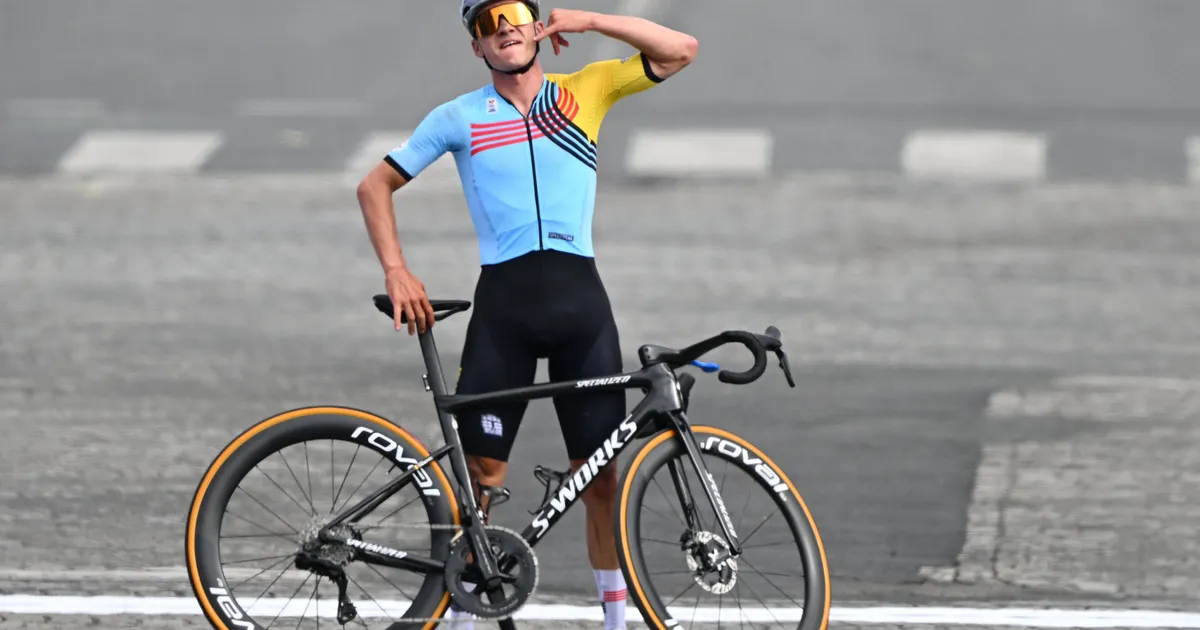From the moment he turned pro with Soudal – Quick-Step in
2019, Evenepoel was in the spotlight. His rise was emphatic. His first win came
that May at the Hammer Stavanger, and within weeks he added the Baloise Belgium
Tour, showing that he by no means a failed footballer turned cyclist. Though
Quick-Step has long been known for its classic’s expertise rather than Grand
Tour ambitions, Evenepoel was changing the team’s identity almost
single-handedly. Belgian cycling fans began to get excited.
But as the wins piled up, monuments, Grand Tour stages, the
Vuelta, time-trial and road race titles in both Olympic and World Championship
colours, the question lingered: could Quick-Step ever build the kind of super-team
needed to support him in a three-week battle against the biggest GC names?
The answer was always no.
Even with additions like Mikel Landa and Valentin
Paret-Peintre, Quick-Step’s GC squad never reached the depth of UAE or Visma. At
UAE, Pogacar is supported by the likes of Almeida, Ayuso, Adam Yates, whilst
Vingegaard has Simon Yates, Sepp Kuss, Matteo Jorgenson and Wout van Aert. No
other team has that sort of depth, but now BORA seem to have the capacity to create
that depth.
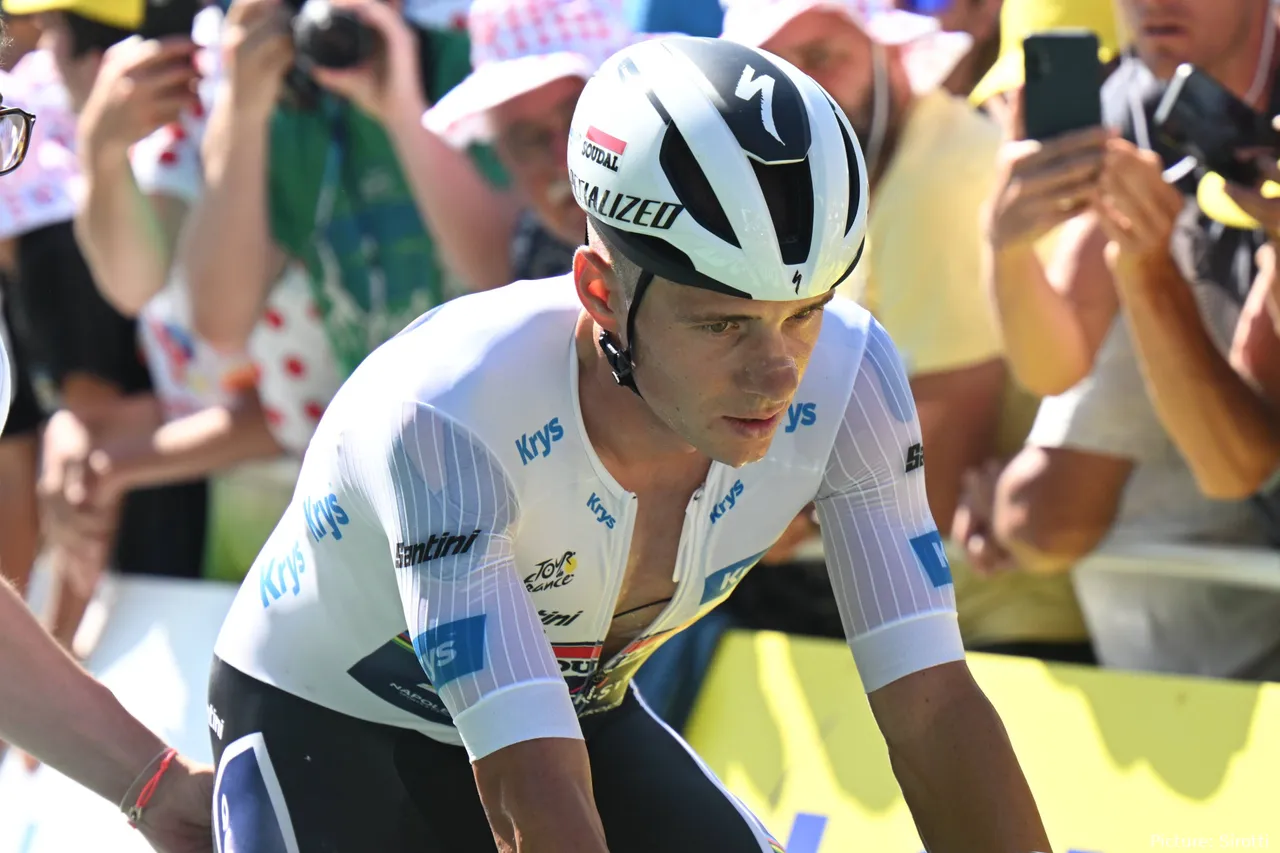
Evenepoel has never enjoyed the domestiques of his rivals
In recent years, Quick-Step remained split in its
priorities, still focused on sprinters like Tim Merlier while lacking both the
climbing domestiques and the budget to back a GC leader properly. Their
reported budget sits around €30 million. That’s dwarfed by Visma’s €40+ million
and UAE’s €50 million war chest. Red Bull – BORA – hansgrohe is now operating
in the same financial bracket as the top two as well.So why now?Evenepoel’s transfer had been brewing for years, and it was
back in 2021 that BORA’s Ralph Denk first tried to bring him over. At the time,
Quick-Step boss Patrick Lefevere was scrambling to secure a title sponsor.
Denk’s interest was public, even offering a five-year deal and attempting to
buy the team outright. Lefevere countered by flying to Evenepoel personally,
offering his own five-year extension.
At just 21, still recovering from his horror crash at Il
Lombardia the year before, Evenepoel chose to stay with his current team. After
all, he was still learning the art of being a professional cyclist, and it was
not clear yet just how far his talent could go.
He repaid that faith with the 2022 Vuelta win, followed by
his world championship triumph just weeks later. But behind the scenes, things
were not smooth. Remco and his father Patrick (who manages him) pushed for more
GC support, something the team couldn’t deliver.
When Evenepoel abandoned the 2023 Giro with illness, cracks
began to show. Later that year, at the Vuelta, he was left to fight Visma’s
triple threat of Sepp Kuss, Jonas Vingegaard, and Primoz Roglic virtually
alone. They had the numbers, he did not. And one bad day on the Tourmalet saw
him vanish from GC contention.
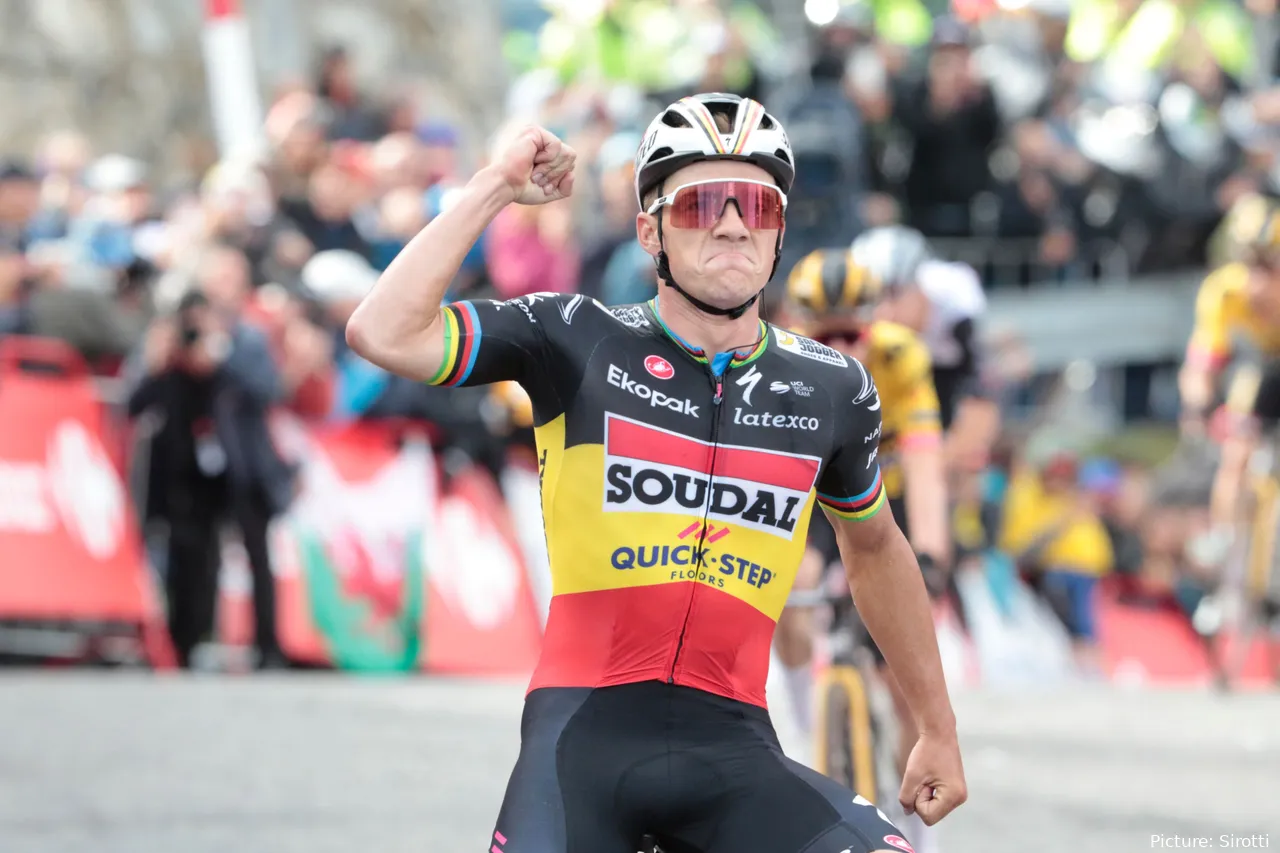
Evenepoel faced the might of Visma at the 2023 Vuelta
And then came the attempted Visma–Quick-Step merger.
The bombshell story emerged after the Vuelta, with Soudal
and Evenepoel tipped to join the Dutch powerhouse. “You ride with the Soudal – Quick-Step
jersey, but you don’t know whether you’ll still be wearing that jersey next
year,” Evenepoel told Cycling News. “But all’s well that ends well.”
The merger collapsed eventually, and so Evenepoel stayed. BORA
pivoted to signing Roglic for 2024, while INEOS tried, and failed, to lure
Evenepoel as they slid down the WorldTour rankings. That winter, Evenepoel
announced his intentions to make his Tour de France debut, meaning we would finally
see him fighting Pogacar and Vingegaard. But after his Tourmalet disaster, many
fans suggested that he did not have the legs to go toe to toe with the top two.
But 2024 changed everything.
The foundations for this transfer were laid in January 2024.
While his team trained in Mallorca, Denk was in America, quietly selling a
majority stake of the team to Red Bull. With the energy drink giant’s backing,
the team now had both the money and strategic vision to make Evenepoel the
centrepiece of a super team. And when Red Bull set their sights on something in
sport, they usually tend to get it.
The goal was always clear: Remco, in 2026.
At the Tour de France this summer, Evenepoel finally made
his long-awaited debut. He finished third overall, won a stage, and claimed the
white jersey, silencing most of his doubters that he had what it takes. Evenepoel
did have the support of Mikel Landa that summer, which perhaps convinced him to
say at Quick-Step a little while longer. The Belgian went on to make history
with two gold medals at the Paris Olympic Games, and his star power then went
to new heights.
Then the final fracture hit, Lefevere stepped down as CEO at
the end of 2024.
Jorgen Foré took over, but the team’s fate was already
sealed. Denk had the money and had the plan. And crucially, he had the patience
to get things done behind the scenes, all the while swatting away the media
outlets looking for information.
In December, Evenepoel suffered a training crash and spent
four months recovering from a shoulder injury. At the 2025 Tour, he abandoned
after three disastrous days in the Pyrenees, where he had enjoyed no help from his
team in the high mountains. Without the injury, the outcome may have been
different, but the deeper issue remained. He simply did not have the team
around him.
It had taken nearly five years, but the move was always
inevitable. The week after he abandoned the Tour, journalist Daniel Benson confirmed
that the signing was as good as done. Yesterday, it finally became official.
But how did Lefevere and Quick-Step take the news?
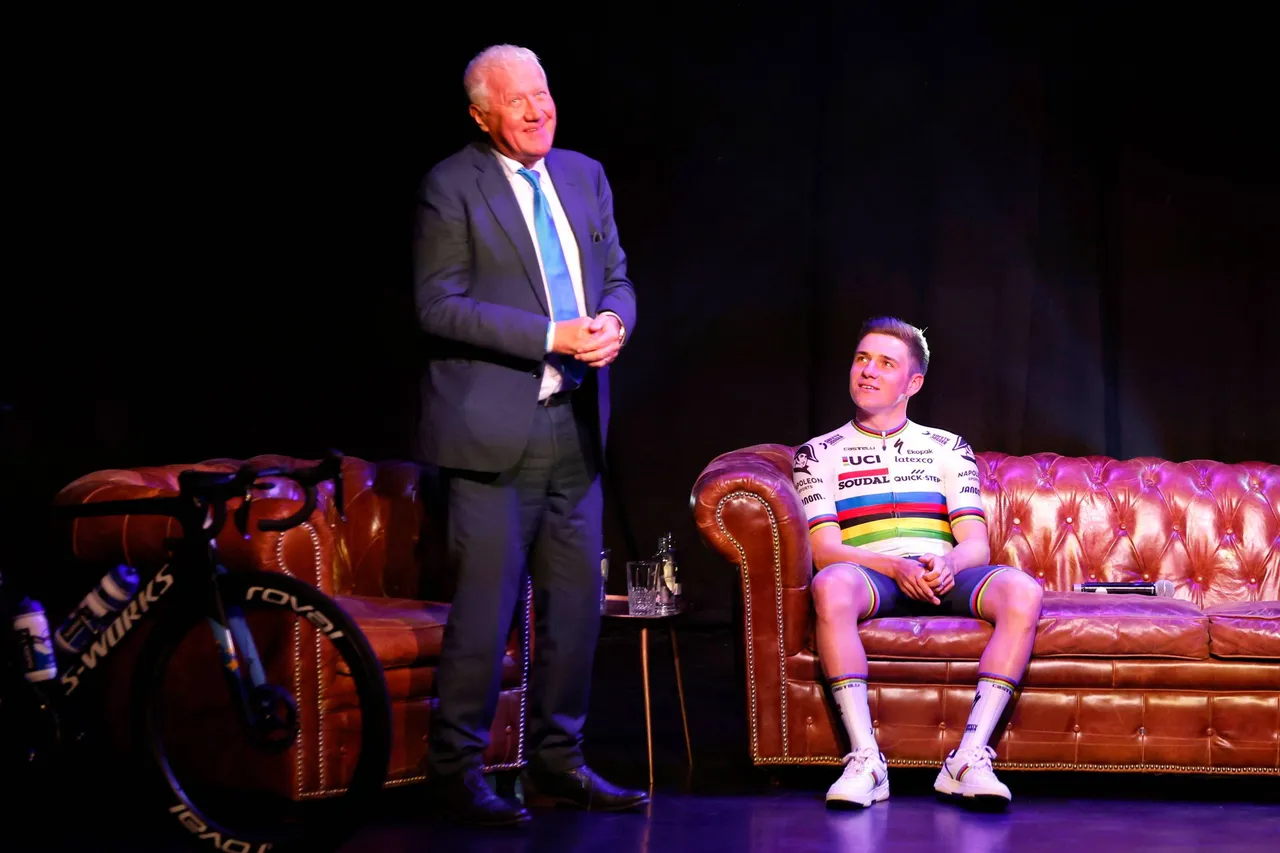
Lefevere was crucial in the development of Evenepoel
“Since I stepped down as CEO of Soudal Quick-Step, I’m
no longer involved in transfers or any team matters. Agreement-wise, I’m also
not allowed to communicate about transfers – not even about Remco,” Lefevere
wrote on social media. “Please don’t call me. This is the only
communication I will make.”
In Evenepoel’s home country, the media has been divided on
the transfer. Het Nieuwsblad questioned the way the deal was done. “Leaving the
team before the end of his contract shows little respect for his employer,” the
paper wrote. “Had Evenepoel left his team at the end of 2026, he would have had
little to reproach him for. Now, there remains that bitter aftertaste of
ingratitude and egocentrism.”
Jan Bakelants, writing in Het Laatste Nieuws, called it “a
complex transfer. It’s almost a hostile takeover.”
De Morgen was blunt, “Anyone who leaves the Lefevere team,
now the Foré team, usually performs less well… We’ll have to wait and see if it
benefits him. As a footballer, things went downhill after his transfer.”
The criticism isn’t surprising. Evenepoel has been Belgium’s
biggest cycling talent in a generation. To lose him, early and to a
German-backed squad, is a national bruise.
Who else is at Red Bull – BORA – hansgrohe?
Evenepoel won’t arrive alone. According to La Dernière Heure,
he’ll be joined by his longtime DS Klaas Lodewyck, a mechanic and a soigneur
from Quick-Step. Add to that Sven Vanthourenhout, the architect of his Belgian
national team successes, and it’s clear: BORA isn’t just signing a rider,
they’re building a program around Evenepoel.
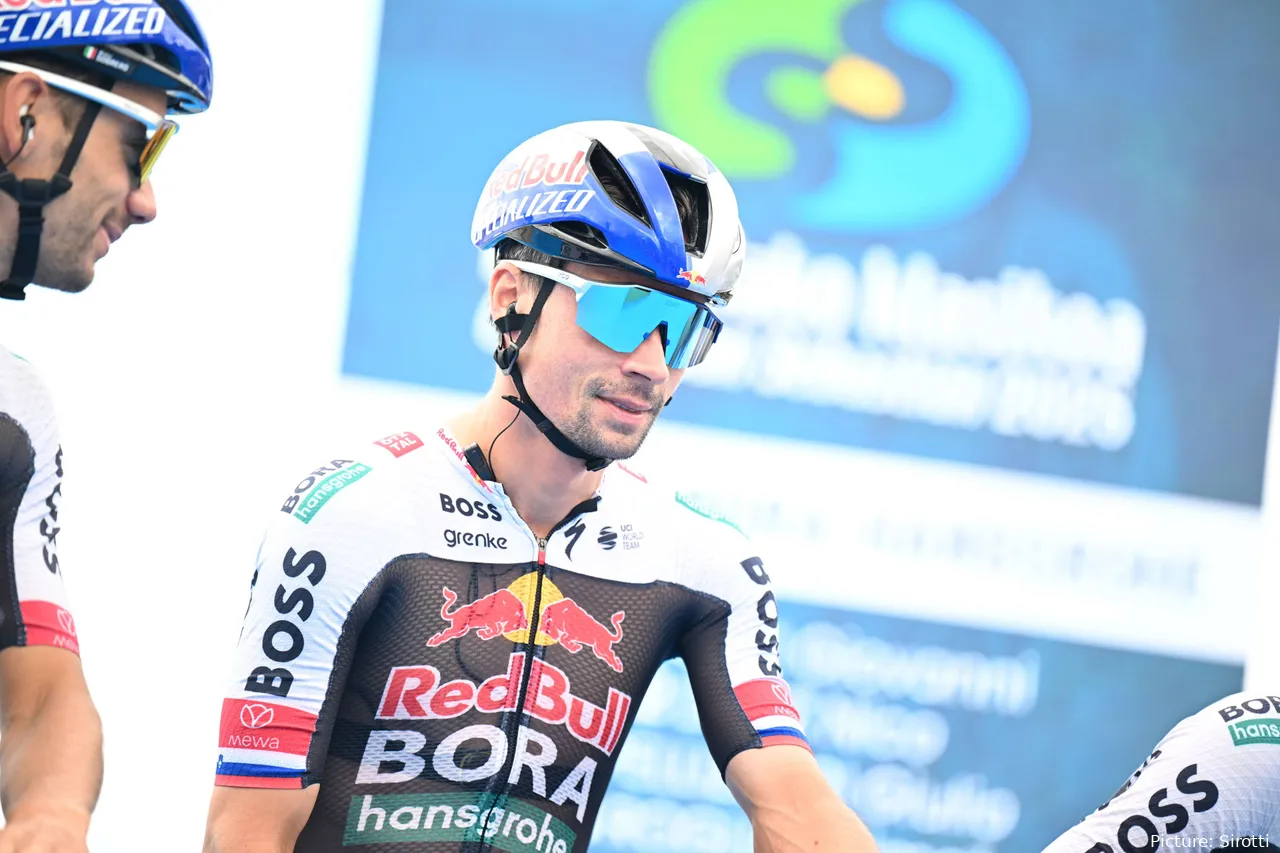
Roglic will still race for BORA in 2026
There’s already serious talent on the roster. Primoz Roglic,
though 36 by 2026, showed at this year’s Tour that he still has the legs. His
third-week breakaway fireworks were some of the most exciting moments in the
Alps, and he finished top ten in GC, despite entering the race undercooked from
Giro injuries.
Then there’s Florian Lipowitz. After Evenepoel abandoned
this year’s Tour, Lipowitz stepped into the void, literally. He claimed third
overall and the white jersey and held both to Paris. Routinely the best of the
rest behind Pogacar and Vingegaard, he’s BORA’s rising GC force. Jai Hindley,
Dani Martinez, and Aleksandr Vlasov round out a stacked lineup of climbing
depth.
How Evenepoel and Lipowitz co-exist will be one of the
sport’s biggest storylines heading into 2026. Before Evenepoel can take the
fight to Pogacar and Vingegaard, he’ll have to prove he’s on top of his new
team.
With Pogacar locked in at UAE and Vingegaard still
dominating with Visma, there was only one path forward for Evenepoel. To win
the Tour, he needed a Tour-winning team, and Quick-Step could never offer that.
And after years of loyalty, failed merger talks, and an endless rumour mill,
Evenepoel made the call to walk away.
He may be criticized for leaving a year early, but the gap
between ambition and reality had grown too wide to ignore. This transfer has
been over four years in the making.

